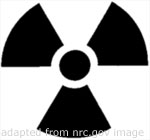Moscow Mulling ‘Nuclear Provocation’ Against Ukraine, Kyiv Analyst Says

(Paul Goble – Window on Eurasia – Staunton, August 4, 2015)
To overcome the stalemate on the ground and to get itself out of the diplomatic corner it has painted itself into by vetoing the UN Security Council resolution on the Malaysian airliner tribunal, Moscow appears to be planning an act of “nuclear provocation” against Ukraine so as to turn the tables on Kyiv and the West, according to a Ukrainian analyst.
On Khvylya.net, Sergey Klimovsky argues that Moscow is now in a position where one must “consider seriously” the possibility that Russia will try to organize a small nuclear explosion possibly of a dirty bomb that it would be able to place the blame on Ukraine (hvylya.net/analytics/geopolitics/pochemu-ugrozu-yadernogo-udara-so-storonyi-rossii-po-ukraine-nuzhno-rassmatrivat-serezno.html).
The Ukrainian military and its supporters have forced the Kremlin from launching a direct invasion this summer, Klimovsky says, and their firmness have led the Russian side to shift from hybrid war to a more normal kind and “to go from attack to active defense.” But that clearly is not sufficient from Moscow’s point of view.
For any breakthrough to happen, he continues, Russia will need more fighters and more technology, especially since the shift from hybrid to regular war threatens to make it into a world conflict. Technically, Russia is “more or less” prepared for this. But “psychologically, the Russian federation is not ready for such a war,” and so the Kremlin is trying to remedy that.
Russian military flights over the Baltic and Europe are not only acts designed to intimidate the West, Klimovsky says, they are intended to make Russians accustomed to the idea that “their army can bomb something in Europe and that from this is required the expression of 100 percent approval of the party, government and bombers.”
That this is what is going on was suggested by Vladimir Zhirinovsky, the Kremlin’s “covert mouthpiece,” in comments on July 31. He called for renaming the Russian Federation the Russian Army, promised to put “half the world on its knees,” and assured Russians that Turks would give them massages and Italians would cook them spaghetti.
His words were warmly supported by his audience almost to Putinesque levels, Klimovsky says.
The next day, “The Times” of London carried a story entitled “Ukraine rebels ‘building dirty bomb’ with Russian scientists” (thetimes.co.uk/tto/news/world/europe/article4514313.ece). Its source was the Ukrainian intelligence service, and the DNR hastened to respond with a non-denial denial: a bunker with radioactive waste exists there, but no one is working with it.
That wasn’t enough so then propagandists for the Russian-occupied areas suggested that the US was preparing a nuclear bomb there and planning to use it against the Russians in the Donbas. Such absurdities are the norm in Russia’s info war, Klimovsky says, “but the threat of a nuclear terrorist act on the occupied portion of the Donbas and in Rostov oblast is real.”
The reason for that is “Churkin’s veto at the UN” on a resolution calling for a tribunal about the Malaysian airliner. Having cast it, Russia in effect “admitted that its forces shot down the passenger jet. If the Russian Federation had not been involved, then it would have supported the creation of the tribunal.”
Having landed in this position, Klimovsky says, “the Kremlin had to immediately create someone who could be called a greater terrorist than Russia.” A terrorist act in Africa wouldn’t have been enough to end the opprobrium visited on Moscow but an attack supposedly orchestrated by “’the bloody junta from Kyiv” again Russians would be “convincing.”
“A nuclear strike on the Donbas” would cause people to forget about the tribunal and would be used by Moscow to “justify its annexation of Crimea.” The Russian side would claim that “Kyiv apparently had not given up its nuclear arms” and “therefore Russia had done the right thing by seizing Crimea since Ukraine itself had violated the Budapest agreement.”
The most probable places where such an incident could be carried out and then blamed on the Ukrainians are Debaltsevo, Shirokino and Gorlovka. The first, where a train brought “an important cargo” on July 30 that required guards, would work because it is near Ukrainian lines and the total population is much smaller because many have left.
A thousand casualties from such an explosion would be enough for Moscow to begin talking about “a new Hiroshima.” And of course, “the Kremlin would be very happy if the wind would carry the radiation from an explosion further into Ukraine.” It might even arrange to have this happen on August 24, Ukraine’s Independence Day.
The other two sites would also serve, Shirokino because it would reduce Russian losses in an eventual attack on Mariupol and Gorlovka because a nuclear explosion there could set up a series of chemical explosions. The number of victims all that would cause make it perhaps “the most suitable candidate for Hiroshima-2,” as Russia Today would undoubtedly claim.
Right now, Klimovsky says, “three things can prevent a [Russian-orchestrated] nuclear terrorist act in Donbas:” the creation of a UN tribunal on the downing of the Malaysian aircraft, the introduction of UN peacekeepers into the Donbas, and the winds which normally at this time of year would carry any radioactive cloud into Russia.
For the time being, the Khvylya.net commentator concludes, “the winds are the most reliable means.”
Article also appeared at windowoneurasia2.blogspot.com/2015/08/moscow-mulling-nuclear-provocation.html
